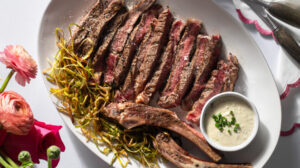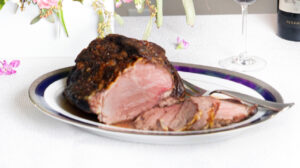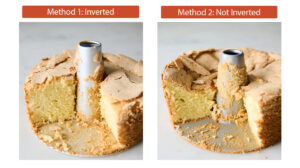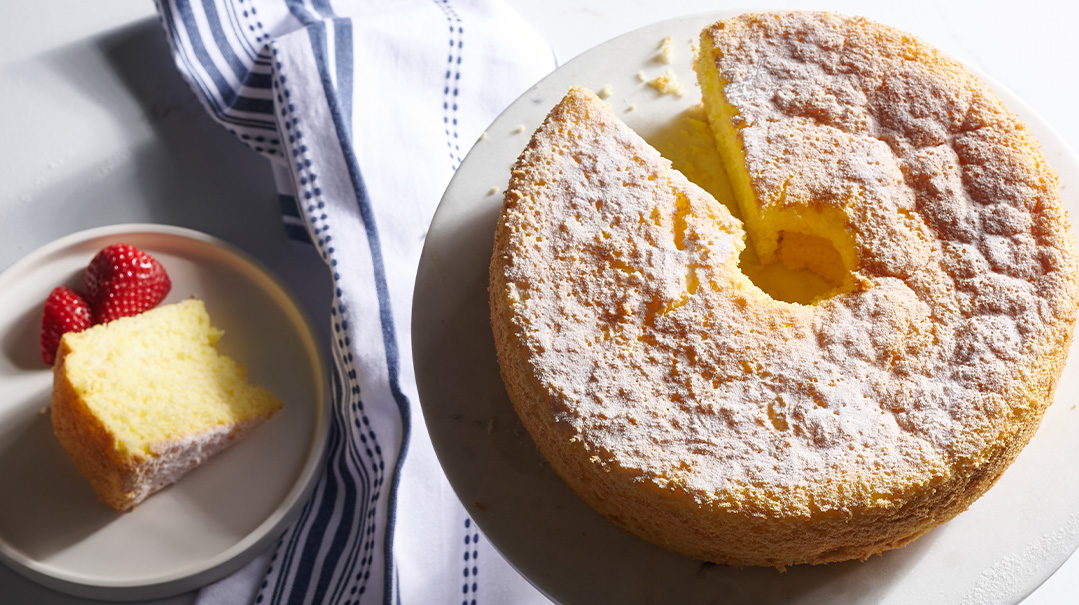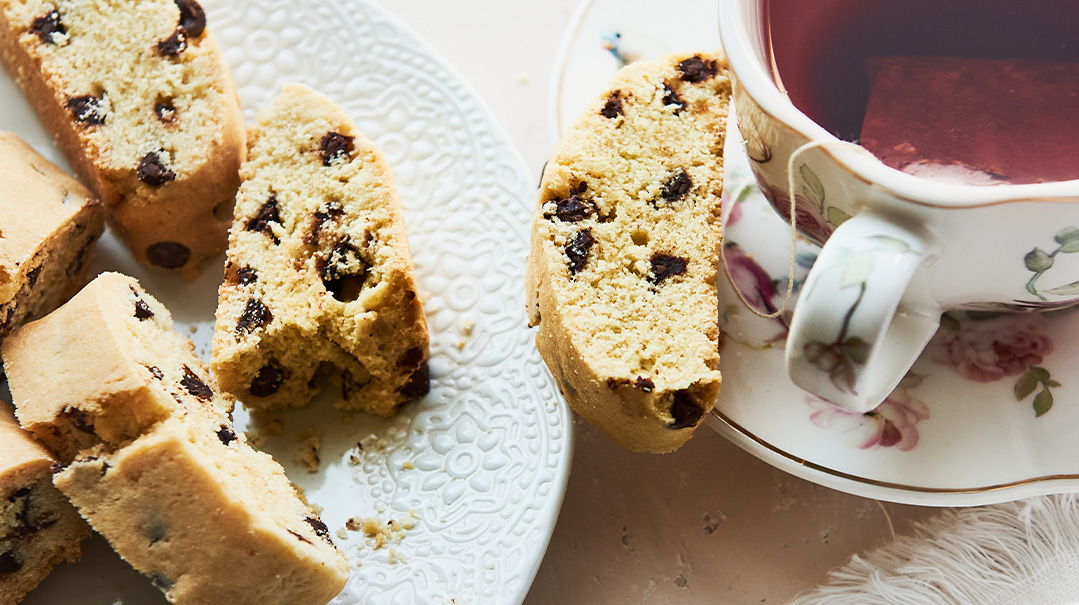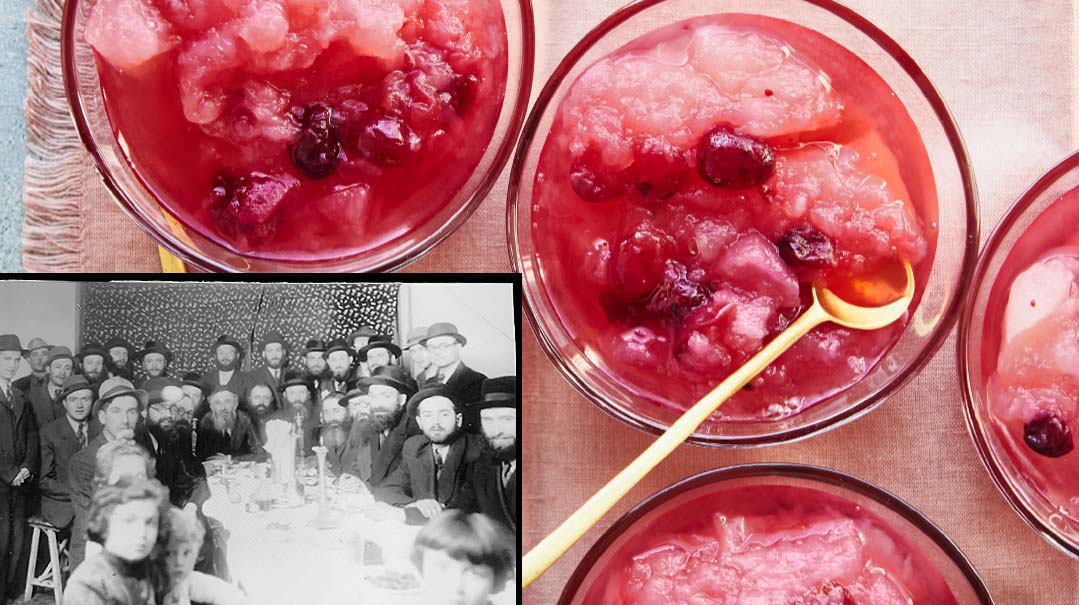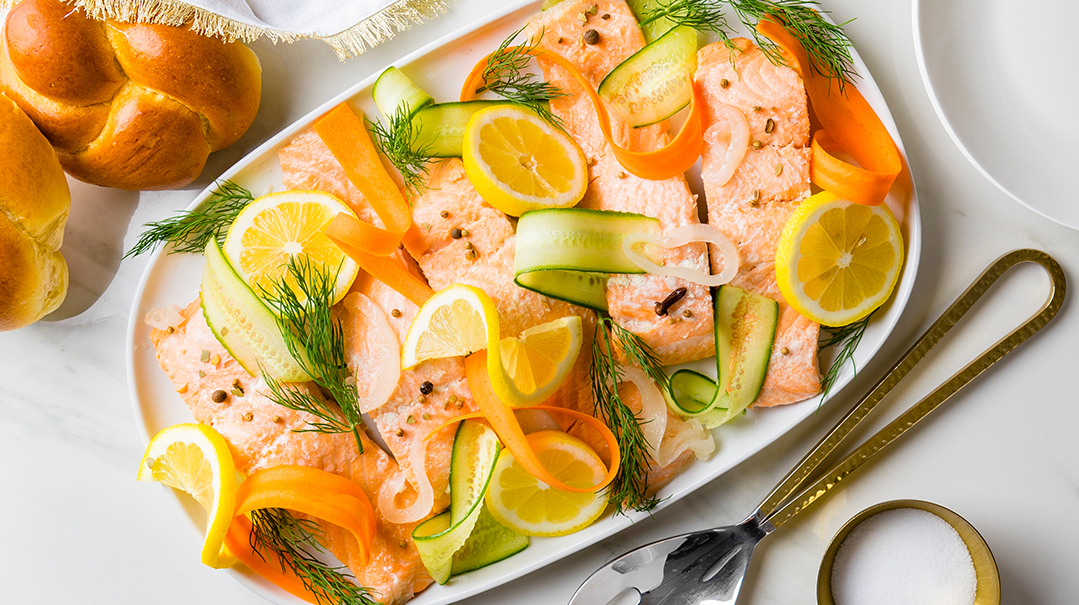Always with Joy
| December 23, 2020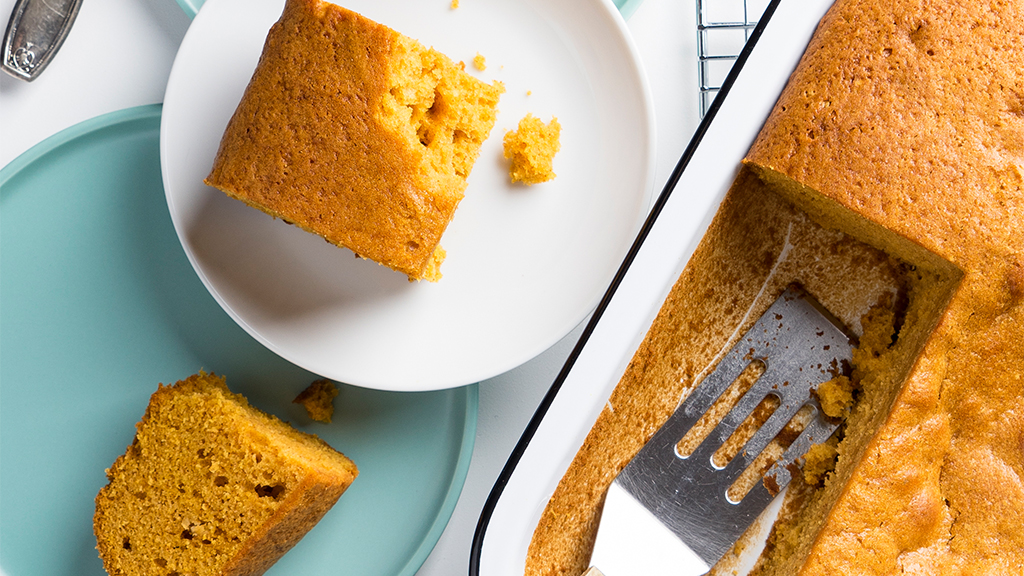
Thoughts and recollections shared by Rebbetzin Zahava Braunstein’s daughters and her frequent Shabbos guests
“Ein haShechinah shorah ela mitoch simchah.”
Rebbetzin Zahava Braunstein was a nurturer and a giver, and the food she cooked for others was a physical, nurturing backdrop to the love and warmth she doled out in her role as wife, mother, grandmother, camp director, principal, and teacher of thousands of women.
One of the refrains I kept hearing about Rebbetzin Braunstein was that she was calm and b’simchah — even on a hectic Friday afternoon, preparing for Shabbos with lots of family and guests. There was never stress in the preparations leading up to Shabbos and Yom Tov, even if it was busy and things were flying.
She would say that if the home is a mikdash me’at, then the women who manage it are like the Kohanim. The Kohanim’s job would certainly get messy — shechting animals, cleaning up blood — but no one pitied them that work; rather, they were envied. It was a privilege — and so is being the mother of a home, including both the messy times and the shining moments.
When Rebbetzin Braunstein spoke to married women, she would encourage them to come into Shabbos calm, whatever it took. “Your husband would rather enter the house and see your face shining with joy than see the floor shining,” she’d say. “And if the difference between coming into Shabbos calm or stressed is that last dessert or kugel, skip the kugel and be calm.”
Shabbos at the Braunstein home was normal and typical, as her daughters described it, yet special and regal at the same time. There were guests from all walks of life at the table, and after the meal, more guests would pour in to schmooze. A frequent guest and close friend of Rebbetzin Braunstein wrote to her in a letter:
“How wonderful it was to sit at the Shabbos seudah as you served Rabbi Braunstein like a king, as all the children sang and shared divrei Torah — as life went on in all its normal shades of reality — bickering, teasing, and generally enjoying.
“How wonderful it was to eat the warm, fresh challah, the most delicious gefilte fish ever — to savor the first bite of chicken soup with lots of great veggies and lima beans. I always appreciated the goodness and simplicity of the seudos — the fun nuts, nosh, piles of fruit — all put out so elegantly on small serving dishes, cake trays, and silver pieces. Everything was truly lichvod Shabbos and lichvod haTorah.
“When the veritable throngs of visitors would almost always start arriving after the seudah, it was so exciting — it was so fun! I always felt the simchah — the light and pure enjoyment of Yiddishkeit that you radiate and impart to everyone around you.”
The guests who found their way to the Braunstein home were eclectic, yet they all gained from watching Rebbetzin Braunstein in action. One particular guest was welcomed into the home by one of her daughters. As he was led to the guest room, he stopped in his tracks when he saw Rebbetzin Braunstein davening by the Shabbos candles. When she finished, she greeted him warmly. Seeing that he looked a bit pale, she asked if he was okay. He responded, “I never saw a Jewish woman lighting Shabbos candles before. When you were praying, I saw angels coming in.”
Rebbetzin Braunstein would laugh when she told the story, and say that right before candle-lighting one daughter would still be blow-drying her hair, and another was yelling from upstairs to find out what time shkiah was, and this guest saw angels? But her children knew that it was the truth — when Rebbetzin Braunstein lit the candles and davened, they felt the Shechinah coming into their home. There was a feeling of peace, serenity, and holiness. That’s what the guest saw that night, and what family and visitors experienced every Shabbos.
Rebbetzin Braunstein used to stress to her daughters and to her students that the mother sets the atmosphere in the home. If a mother is happy, it carries over to everyone else. She’d ask the women in her classes, “What does it mean that the candles of the matriarchs were lit from week to week?” She’d explain that when you light a candle, you create an atmosphere of joy — “laYehudim haisah orah v’simchah.”
One daughter recalls how Friday nights after candle lighting were a special time when her mother would schmooze with her and ask her what was going on in her life. She felt so special knowing it was their time to catch up, even though inevitably her mother would fall asleep from exhaustion within a few minutes.
On the nights that Rebbetzin Braunstein would retire to sleep early, her daughter would clean up after the seudah. And the next morning, without fail, Rebbetzin Braunstein would exclaim, “You can’t imagine what it was like coming into the kitchen and seeing how you cleaned up so beautifully last night — you have magic hands!” Although it’s normal for a teenage daughter to help clean up, she didn’t take it for granted, and consistently praised and thanked her daughter for doing that work.
Rebbetzin Braunstein gave generously even on the most trying of days. One daughter remembers getting a phone call from her mother on the morning of Erev Pesach, when she was planning to come for Yom Tov, telling her to come with the kids early in the day because it was probably so hard to figure out what to serve the kids that day. Today, as a mother and grandmother herself, she realizes what a busy day Erev Pesach is and what a tremendous gift her mother was giving her.
Rebbetzin Braunstein would bake challah regularly, and tell her married kids to come by and take one home. It was the same with her massive pot of aromatic gefilte fish balls — the married kids would stop by to pick up a container before Shabbos and bring a taste of their mother’s love into their own homes.
Her daughters describe the consistency and the beautiful simplicity of the meals she served. Although she’d occasionally make something new, there wasn’t a goal of serving complex foods or trying recipes that were a big patchke. But the security of ample, delicious food prepared with love and joy, and the focus on time spent with family and friends, together with beautiful zemiros and divrei Torah, created a very spiritual and special Shabbos experience.
Rebbetzin Braunstein’s Carrot Cake, aka Swiss Cake
- 4 eggs, separated
- 4 small baby food jars carrots
- 2 cups sugar
- 1 cup oil
- 3 cups flour
- 2 tsp baking powder
- 2 tsp baking soda
- 2 tsp cinnamon
- 1 tsp vanilla
Beat the egg whites and set aside. Mix the yolks and the remaining ingredients together in a mixer. Fold in whites gently. Pour into a greased 9x13-inch (20x30-cm) baking pan or 2 round pans and bake for 1 hour at 350°F (175°C).
(Originally featured in Family Table, Issue 723)
Oops! We could not locate your form.




